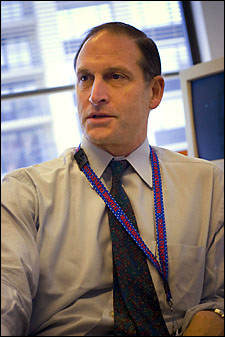Blumenthal will not give industry free hand in standards


That's the headline in a New England Journal of Medicine perspective piece Blumenthal wrote about the plan, shortly before he was nominated.
In the extract following, ONCHIT stands for the Office of National Coordinator for Health Information Technology, which Blumenthal has been nominated to lead. HITECH stands for Health Information Technology for Economic and Clinical Health, the health IT part of the stimulus package:
ONCHIT currently contracts with a private organization, the Certification Commission for Health Information Technology, to certify EHRs as having the basic capabilities the federal government believes they need. But many certified EHRs are neither user-friendly nor designed to meet HITECH's ambitious goal of improving quality and efficiency in the health care system. Tightening the certification process is a critical early challenge for ONCHIT.
The emphasis there is mine.
Blumenthal also wrote that defining "meaningful use" under the HITECH Act is also vital. Set it too low and it's meaningless. Set it too high and either Congress will cut the requirements or hospitals will just take the penalties for not complying. (HIT stands for Health Information Technology.)
Finally, realizing the full potential of HIT depends in no small measure on changing the health care system's overall payment incentives so that providers benefit from improving the quality and efficiency of the services they provide. Only then will they be motivated to take full advantage of the power of EHRs.
This little zinger is the last substantive point in Blumenthal's piece, before a two-sentence conclusion of how important it all is. It's why the President appointed a policy guy, Blumenthal, rather than a technologist to the NCHIT position.
Blumenthal's point is that the success of health IT reform depends on changing the health care industry's business model. Blumenthal will play a key role in trying to make that happen.
If critics were wondering who might replace Tom Daschle as point man for the President's health reform effort, Dr. Blumenthal has just raised his hand.